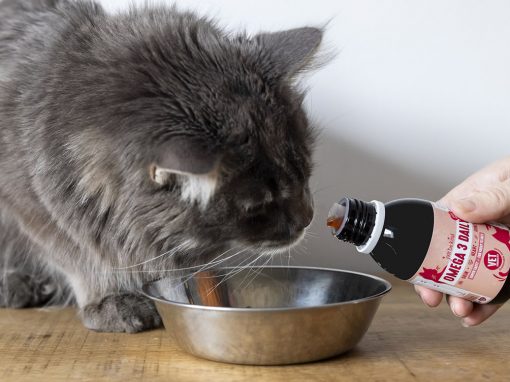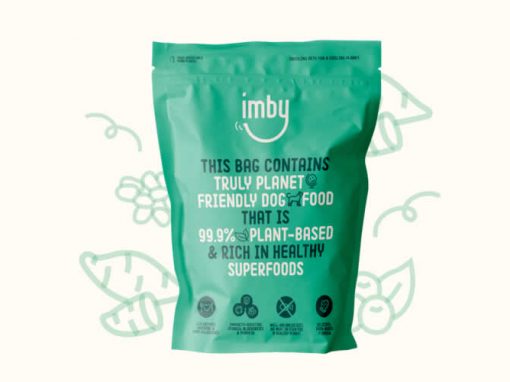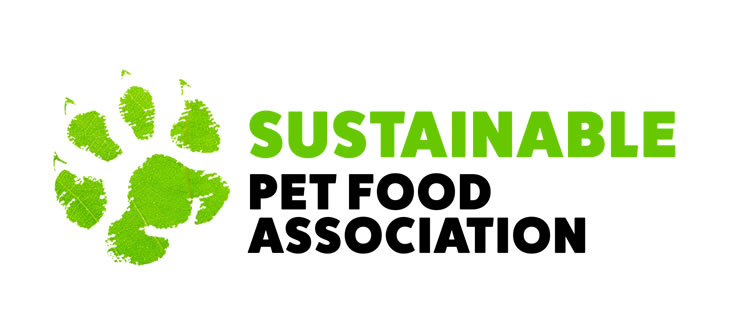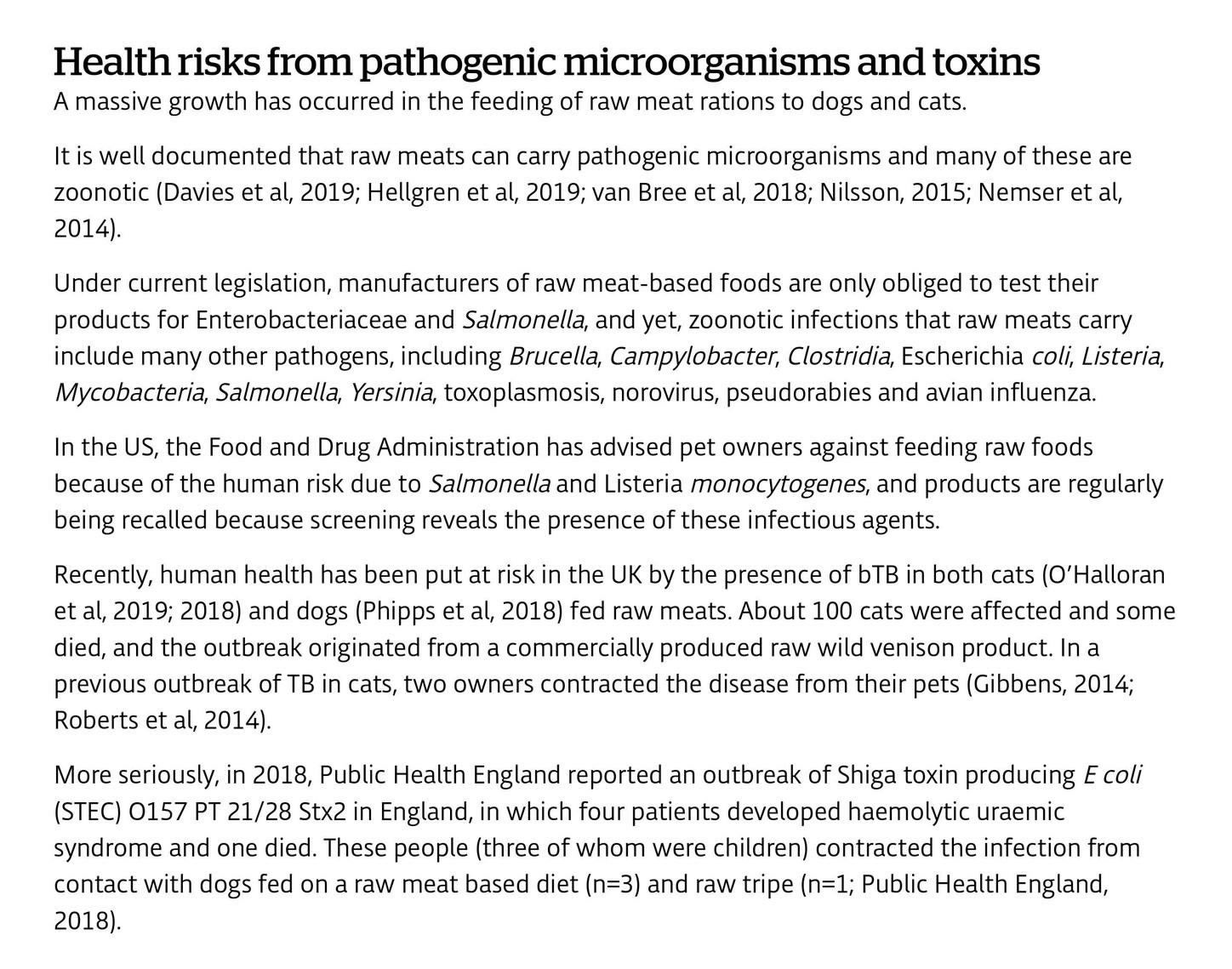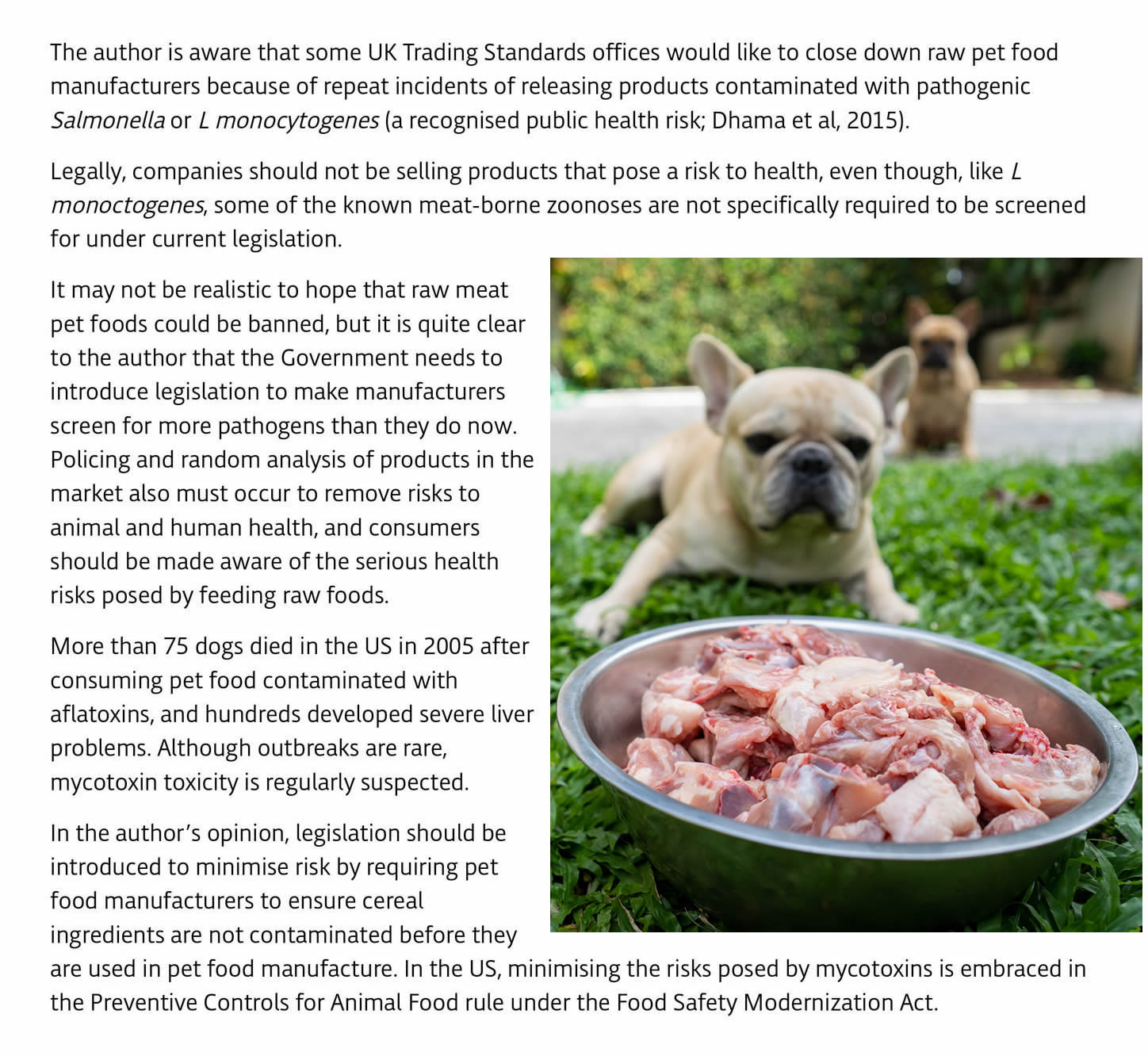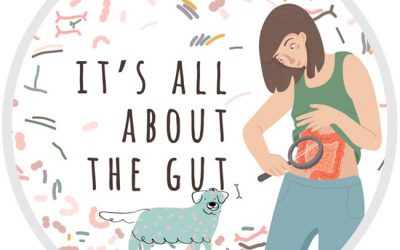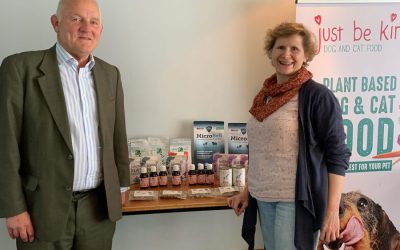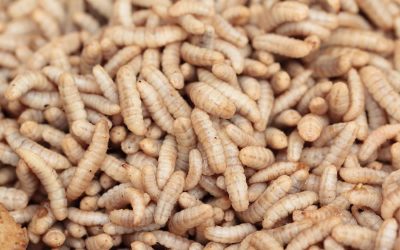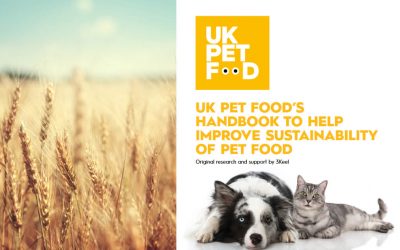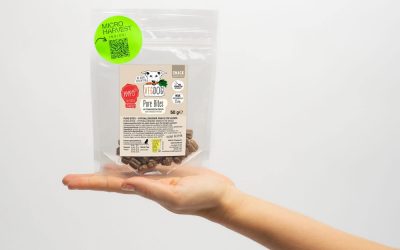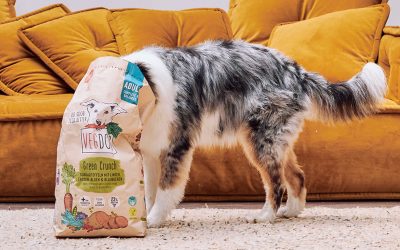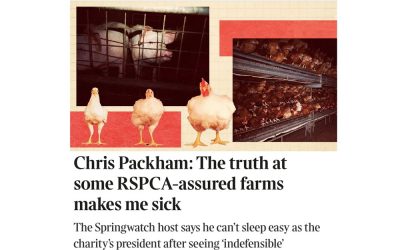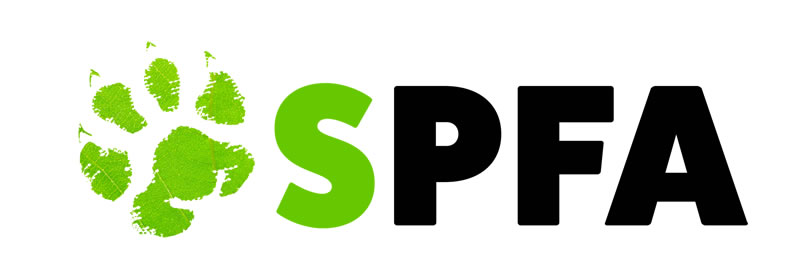We forget very quickly about the effects of one of the top zoonoses Coronavirus and how it affected all our lives. The handling of any raw meat, fish, poultry or even raw hide chews needs to be highlighted to owners, especially raw feeders.
Top small animal vet nutritionist Dr Marge Chandler has stated that she will not even touch any raw hide chews as even they carry harmful bacteria.
Here is a reminder of the top zoonoses that can be transmitted in the saliva of our raw-fed pets –
1. E. Coli
Escherichia coli is a type of bacteria that normally lives in your intestines. It’s also found in the intestines of animals and is one of the main contaminants on uncooked meat or chicken. While many of us associate E. coli with food poisoning, you can also get pneumonia and urinary tract infections from different types of the bacteria. In fact, 75% to 95% of urinary tract infections are caused by E. coli.
2. Campylobacter
The British Food Standards Agency says that one of the main ways to get and spread campylobacter poisoning is through cross-contamination from raw chicken. For example, washing raw chicken can spread campylobacter by splashing it onto hands, work surfaces, clothing and cooking equipment.
Campylobacter is also found in red meat, unpasteurised milk and untreated water. Although it does not normally grow in food, it spreads easily. Campylobacter spp causes vomiting and diarrhoea among around 280,000 healthy people every year and can kill those with vulnerable immune systems. In 2018 there was a report of 27 dogs with suspected acute polyradiculoneuritis (APN) were found to be 9.4 times more likely to have faecal samples positive for Campylobacter spp. Campylobacter can be reduced or eradicated with adequate freezing and cooking of the affected chicken.
3. Salmonella
In the UK, Salmonella contamination of poultry was very prevalent in the 1990s, resulting in a programme which has reduced the prevalence to the targeted <2%. The introduction of raw feeding shows that 20% of frozen commercial raw food diets are contaminated by Salmonella spp that results in vomiting and diarrhoea in both pets and affected humans if affected.
Bowls used for feeding should be cleaned, although standard methods of cleaning bowls, including scrubbing with dish soap and bleaching, are inadequate to eliminate Salmonella.
4. Listeria
In humans, the symptoms of listeriosis include fever, muscle aches, and sometimes nausea or diarrhoea. If the infection spreads to the nervous system, symptoms such as headache, stiff neck, confusion, loss of balance, or convulsions can occur. Infected pregnant women may experience only a mild, flu-like illness although the infection can result in miscarriage, premature delivery, serious infection of the newborn, or even stillbirth. In dogs it is often clinically silent, although it has been reported in association with abortion in dogs.
The van Bree, et al (2018) study found Listeria monocytogenes in 43% of the samples of frozen commercial raw pet food, and in earlier studies Listeria (and Salmonella) were isolated from were isolated from raw foods and jerky-type treats but not dry commercial foods. Listeria is also transferred to humans from milk or cheeses (especially unpasteurised cheeses) affected with Listeria.
5. Antibiotic resistant bacteria
An article published in November 2021 showed that feeding raw food to our pets fuels the spread of antibiotic-resistant bacteria. Humans and pets can contract this bacteria.
Read veterinary article published in MRCVS online August 2022.
The presence of antibiotic resistant bacteria in raw food diets and in the faeces of pets poses a potentially serious public health risk as if a human or pet becomes infected then there would be no effective antibiotic that could be used to fight the infection and organ failure due to infection can result in deaths.
6. Parasites in meat
Parasites that may be present in raw meat in include Toxoplasma gondii, Sarcocystis, Neospora caninum, Toxocara canis, Taenia and Echinococcus. The van Bree, et al (2018) study found 6% of frozen raw petfoods contained Toxoplasma gondii, 11% contained Sarcocystis cruzi and another 11% had Sarcocystis tenella.
Pregnant women are always advised to wash their hands when preparing any raw meat as Toxoplasma gondii can cause miscarriages. The problem is also as concerning when gardening so gloves should always be worn in case of coming into contact with infected faeces.
Most recent article from vet nutritional specialist Dr Mike Davies, published in the Vet Times in January 2023
Canine Microbiome Study Significant Findings
Dogs have adapted genetically to digesting starches and that explains why they do so well on a complete plant-based diet
Studies claim positivity with alternative pet diets
Many owners willing to consider alternative pet diets, studies claim with a high proportion of cat and dog owners now prepared to explore alternative, more sustainable diet options
Plant-based vs Insect-based dog food
Insect Protein-Based Diets as Potential Risk of Allergy in Dogs, and Higher Cost
Avian Flu Pandemic Risk from Raw Feeding
The APHA (Animal Plant and Health Agency.gov.uk) sends anyone interested in environmental matters, emails about looming threats. As a vet, this is what I have received recently in my email inbox - In my inbox yesterday 11th November - An Avian Influenza Prevention...
Raw dog and cat food fuelling spread of antibiotic-resistant bacteria
The very real and always present danger of this latest study yet again finding antibiotic-resistant bacteria in raw commercial cat foods!
UK Petfoods MUST Keep Up!
Using animal byproducts in meat and fish-based pet foods is NOT sustainable!
Cats dying after eating Avian-Influenza-contaminated raw pet food!
Does vegan cat food provide the solution?
Fermented Protein Pet Food – the Future?
Is precision fermentation our future way to feed not only our pets, but ourselves too? Yes it most certainly is!
Could our dogs or cats trigger an avian influenza pandemic?
As our memories of the last COVID 19 disappear, the potential for another pandemic looms and pets could play a role in transmitting it
Using microbial protein for the very first time in dog treats!
This first-of-its-kind protein is derived from bacteria that have been consumed by humans for centuries in foods such as kimchi, kefir, and sauerkraut
BVA says it is possible to feed dogs plant-based
The British Veterinary Association (BVA) has ended its opposition to (nutritionally-sound) vegan diets for dogs
The truth about ‘RSPCA Assured’ farms
The footage obtained from these farms, including distressing images of decomposing pigs, dying chicks, and salmon with missing eyes, is simply indefensible
Recommended sustainable pet foods
